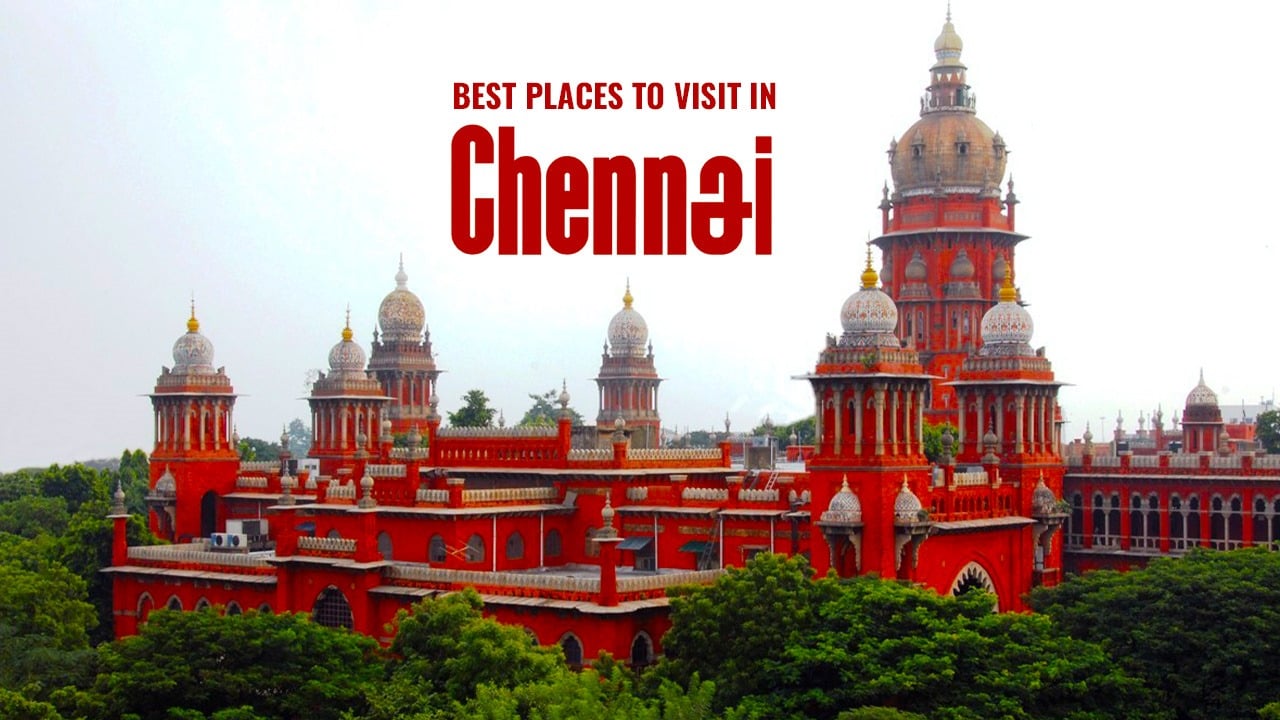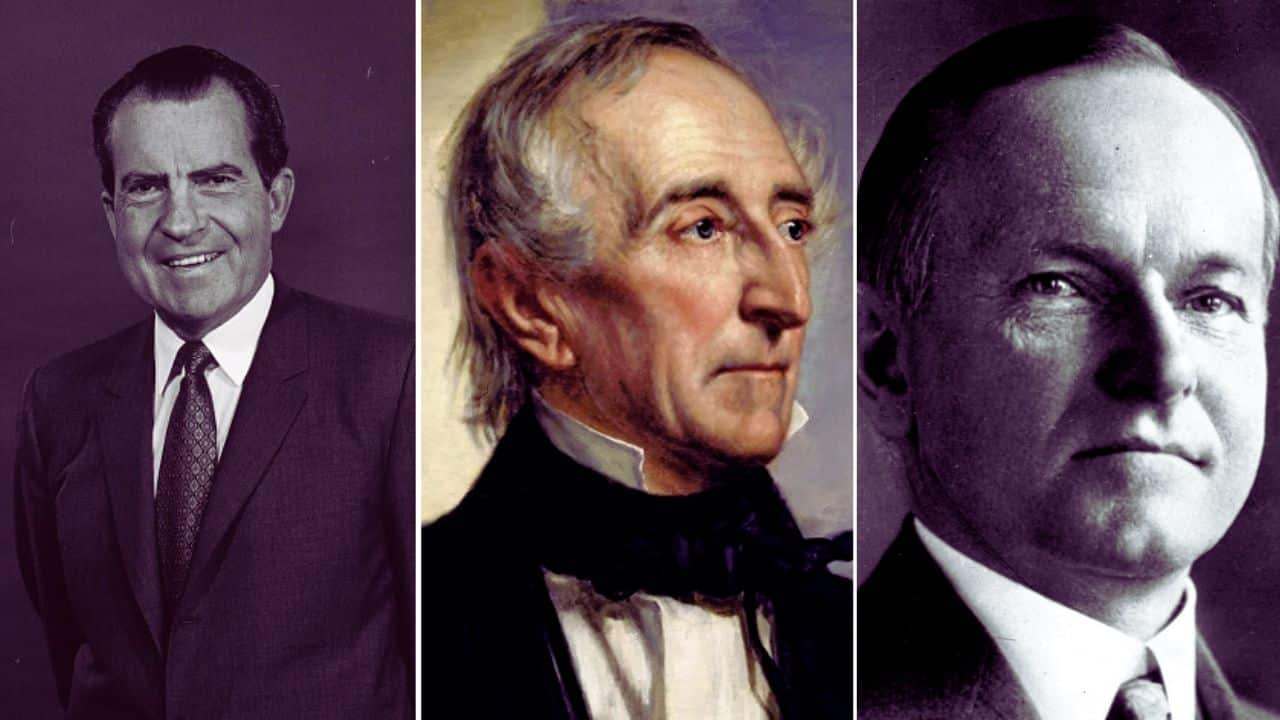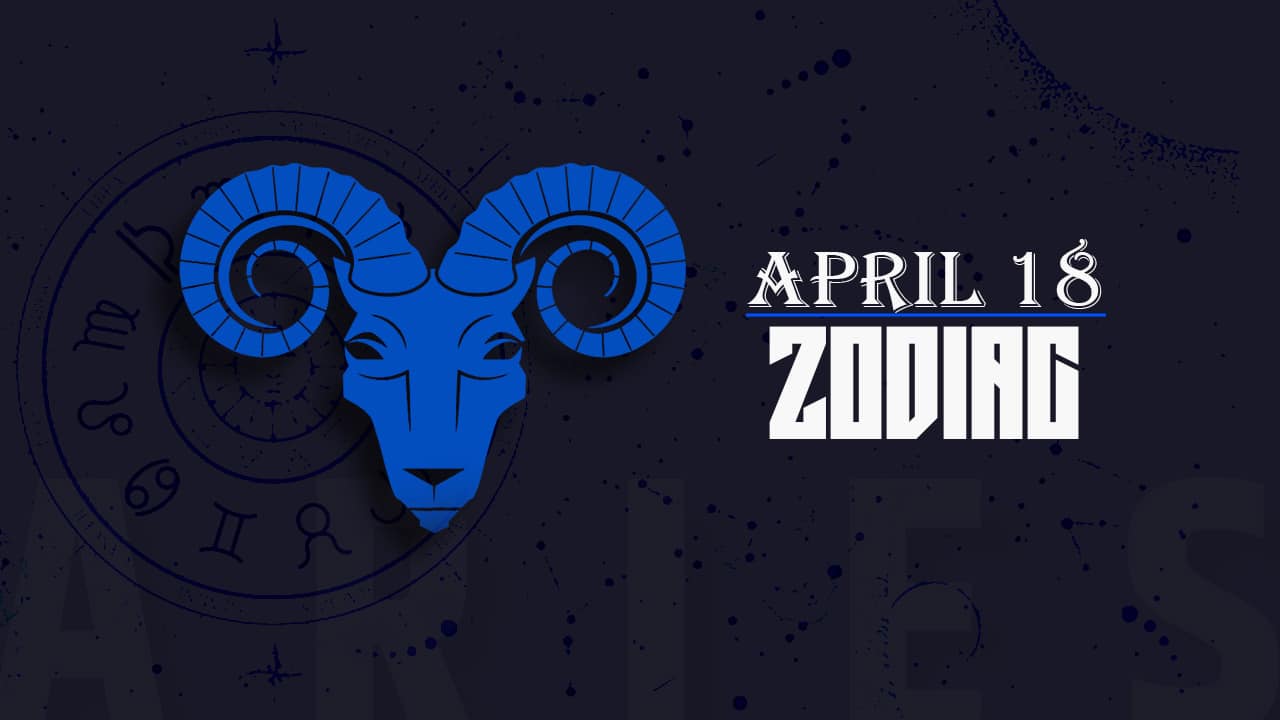Listen to the Podcast:
Mother tongue is a natural language. And all that is natural is full of life and vitality. Therefore, the mother tongue is the language of consciousness and the vehicle of consciousness. Mother tongue is equal to breast milk. Recognizing that the mother tongue on the international stage is not very old.
International Mother Language Day is celebrated worldwide on February 21. International Mother Language Day was approved by (UNESCO) in 1999. Generally, International Mother Language Day is celebrated on February 21 to promote multilingualism and raise linguistic and cultural diversity awareness. Not only is language a means of communication, but it also reflects a rich cultural and intellectual heritage.
This day is mournful and glorious in the nation’s life. Ekushey, in February 1952, was the first manifestation of Bengali resistance to colonial dominance and rule exploitation and the first manifestation of national consciousness.
Read More: Writer of Mother Language Day Song
On that day, Rafiq, Jabbar, Salam, Barkat, and Safiur poured fresh blood on the chest to keep the dignity of the mother tongue, Bangla. This is the first time in history that chest blood has been poured on the streets in the name of the mother tongue. The sad alphabet and their mother’s language were chained that day in exchange for their blood. And through this, the struggle for the development of Bengali nationhood was started and finalized through the emergence of independent Bangladesh on the glorious path of the Liberation War.
Ekushey February has therefore become a symbol of eternal inspiration for Bengalis. From the very first hour of Ekushey, the nation has remembered the language martyrs with a grateful heart. With all the emotions in the heart, the immortal mourning song of Ekushey plays in everyone’s voice.
“Ekushey February was dyed in my brother’s blood.”
Can I not mention…
History of Bengali Language Movement:
Ekushey February is the month of inspiration for the roots of the broken nation. This day has strengthened the identity of the tradition. As a Bengali-language state, Bangladesh has won a place of honor worldwide. Rabindranath Tagore, the poet of this language, was awarded the world’s most valuable Nobel Prize in 1913 for writing the immortal poem “Gitanjali.” Bangabandhu Sheikh Mujibur Rahman, the Father of the Nation, introduced Bangla to the world stage in 1974 by delivering a speech in Bangla at the United Nations General Assembly.
In 1999, UNESCO recognized Bangla as International Mother Language Day. In 2010, the General Assembly of the Jatiya Sangsad unanimously adopted the resolution “Ekushey February will be celebrated as the International Mother Language Day every year” from “Now. And in this way, the process of globalizing the Bengali language is going on.
The language movement started on September 1, 1947, at the hands of Tamaddun Majlish, a literary and cultural organization founded by Professor Abul Kashem of Dhaka University. On September 15, Tamaddun Majlish published a booklet titled “State Language of Pakistan: Bangla or Urdu?” The authors of this booklet, Kazi Motahar Hossain, Abul Mansur Ahmed, and Professor Abul Kashem, strongly demanded the establishment of Bengali as the language of exchange and court.
Read Alos: World’s Most Spoken Language
On February 23, 1948, Urdu and English declared the official languages in the Constituent Assembly of Pakistan. Dhirendranath Dutta, the representative of East Bengal in the Constituent Assembly, proposed to adopt Bengali as the language of the Constituent Assembly along with Urdu and English as the languages of the majority of the people of Pakistan. When the Pakistani Constituent Assembly rejected his proposal, protests, and demonstrations broke out in East Bengal.
Following this, the Rashtrabhasha Sangram Parishad was formed at a meeting on February 27. In the meeting, it was decided to observe a hartal across the country on Thursday, March 11, demanding the recognition of Bengali as the state language. From 1948 to 1951, March 11 was celebrated as “State Language Day.”
Key Facts Before 21st February 1952:
On March 21, 1948, at a civic reception at the Racecourse Ground, Muhammad Ali Jinnah announced that “Urdu would be the only state language of Pakistan.”
Speaking at a convocation ceremony at Dhaka University’s Curzon Hall on March 24, Muhammad Ali Jinnah categorically rejected the demand to establish Bengali as the state language, saying, “The state language of Pakistan will be one, and that is Urdu. Only Urdu represents the Muslim identity of Pakistan.”
Also Read: Bangladesh Victory Day
Jinnah’s statement evoked a sharp reaction at the conference, and the students stood up and protested, saying, “no, no.” As a result of Jinnah’s clear anti-Bangla stance, the language movement in Pakistan gained more acceptance in the past.
The second phase of the language movement began with the speech of Khwaja Nazimuddin on January 27, 1952. “Urdu will be the state language of Pakistan,” he said at a public meeting at Paltan Maidan.
The meeting was held to protest Nazimuddin’s speech and a student strike in Dhaka on January 30. On that day, the student leaders gathered at Amtala and decided to observe a strike and protest meeting on February 4 and a nationwide hartal on February 21. Later, they marched towards Burdwan House.
The next day, on January 31, 1952, at a meeting held at the Bar Library Hall of Dhaka University, a 40-member “All-Party Central State Language Workers Council” was formed with Kazi Golam Mahbub as the convener under the chairmanship of Maulana Bhasani. Council, in its meeting on February 21, adopted the action plan of hartals, rallies, and processions.
 Glorius History and Significance of 21st February 1952:
Glorius History and Significance of 21st February 1952:
On February 20, through the local administration, the government imposed Section 144, which banned rallies and processions in Dhaka for a month starting February 21. The students of Dhaka University held meetings in different halls and decided to violate Section 144.
Know More: Bangladesh’s 50th Independence Day
According to the pre-scheduled program, on February 21, students of different educational institutions gathered at the Dhaka University premises from 9 a.m. They continued to raise slogans against the imposition of Section 144. They urged the members of the East Bengal Legislative Council to consider the general public’s views about the Bengali language. Around 2:00 p.m., Abdul Malik, Gaziul Haque, and other leaders remained adamant about fulfilling their demands.
When the students came out on the streets with the slogan “Rashtrabhasha Bangla Chai” in small groups, the police lathi-charged them. Even the students were not spared from the attack. When the students started throwing brickbats at the police, the police used tear gas. The police failed to control the agitated students and opened fire on the procession leading to the Constituent Assembly building.
Abdul Jabbar, Rafiq Uddin Ahmed, and Abul Barkat were killed in the firing. Many of the injured were admitted to the hospital. As the news of the student’s murder spread quickly, the people became angry. On February 22, Nurul Amin Sarkar hastily moved a resolution to recognize Bengali as the state language of Pakistan, and the resolution was passed unanimously.
Recognition of Bangla as the State Language of East Pakistan:
On May 7, 1954, at the initiative of the United Front government, the Government of Pakistan adopted a resolution recognizing Bangla as a state language. On February 16, 1956, the Constituent Assembly of Pakistan recognized Bengali as the state language and moved a resolution to include it in the Constitution.
To Know More: Top 25 Beautiful Places in Bangladesh
On February 26, 1956, the National Assembly of Pakistan passed a constitution recognizing Bangla and Urdu as the state languages of Pakistan. On March 3 of that year, the Constitution of Pakistan, which recognized Bengali as the state language, came into force. The mother tongue movement was successful in 1947 through the Tamaddun Majlish.
The day was celebrated on February 21, 1953. Today, people from all walks of life took part in the prabhatpheri barefoot and go to the Shaheed Minar to pay deep homage and floral tributes. Throughout the day, people wear black badges as a sign of mourning. It also shows respect for the memory of the language movement through discussion meetings, cultural programs, etc.
 Bangla as the National Language of Bangladesh:
Bangla as the National Language of Bangladesh:
Bangla is not only the language of Bangladesh today; it is a known language that has created a glorious history for the world. And the first contribution to this introduction is that of Rabindranath Tagore. In 1913, his immortal poem Gitanjali won him the Nobel Prize. Through this, the world learned about the Bengali language, starting the process of globalization of the Bengali language.
After Bangladesh gained independence in 1971, the Father of the Nation, Sheikh Mujibur Rahman, took the initiative to give the Bengali language a genuinely global form. His ambition was first implemented at the United Nations General Assembly. The United Nations operates in five languages. Presidents of all countries, prime ministers, and appointed representatives of the United Nations speak one of the five languages. Only Bangabandhu Sheikh Mujibur Rahman gave a speech in Bangla as a member state of the United Nations General Assembly on March 23, 1974.
Recognition as International Mother Tongue by UNESCO:
On November 17, 1999, Toghuzhaing recognized the Bangla language as an international mother tongue, earning it a humongous reputation worldwide.
As the “International Mother Language Day,” the celebration of Amar Ekushey worldwide is undoubtedly a massive source of national pride and honor. Since 2000, UNESCO member states have celebrated this as International Mother Language Day.
On March 15, 2001, Prime Minister Sheikh Hasina laid the foundation stone of the International Mother Language Institute in the presence of UN Secretary-General Ban Ki-moon at Segunbagicha in Dhaka. Currently, the International Mother Language Institute is working as an international bridge in the language field along with linguistic research, language preservation, and training, which is playing a role in bringing the Bengali language to world status.
On November 3, 2010, Bangladesh moved the proposal to celebrate International Mother Language Day in the 4th Committee of the 65th General Assembly of the United Nations, and the resolution was adopted unanimously. As a result, it set a shining example of the steadfast support and respect shown by the world to the Bengali nation and the Bengali language. Beyond the borders of Bangladesh, Bengali language and cultural practices are increasing all over the world. Bengali is one of the most spoken languages in the world regarding the number of mother tongues.
Bangla as the Regional Language in Various States:
The number of countries using Bangla at the state level is one: Bangladesh. Constitutionally, the state language of Bangladesh is Bangla. Apart from this, Bengali is one of the administrative languages of the West Bengal, Tripura Province, and Assam Province of India, so in the case of India, Bengali is a regional language. Outside the Indian subcontinent
Bengali has been given the status of an official language only in Sierra Leone, Africa. In 2016, the Australian Parliament passed a bill to recognize Bangla. As a result, the Bengali language has a one-of-a-kind status.
There are 100 universities in 30 countries in the outside world where thousands of non-Bengali students are doing Bengali language education and research every year. Besides, 33 volumes of Rabindra Rachanabali have been translated into Chinese, and Lalon’s songs and philosophy have been translated into English and Japanese.
Bengali language, literature, history, and culture are the most widely practiced in Britain and America, after India and Bangladesh in the outside world. Apart from this, the culture of Bengali is practiced in different countries, including China, Japan, Malaysia, Thailand, Singapore, Germany, Poland, and Australia. At least ten universities and Asian research centers in the United States teach Bengali. Notable among them are New York, Chicago, Florida, California, and Virginia.
Bangla language channels are available on state radios in six countries worldwide. Separate Bangla programs are broadcast on radios in ten other countries. There are six Bangladeshi-owned and Bengali-language television channels in the UK and 10 in the US. Twelve Bengali weekly magazines are published in Bitren. There is a Bengali radio station named “Betar Bangla.”
There are three Bengali radio stations in Rome and Venice and five Bengali newspapers in Italy. There are six online televisions from Italy and more than 100 Facebook televisions on private initiatives. Furthermore, bangla language printed and online magazines are published in eight European countries, including Denmark, Sweden, and six Middle Eastern countries.
Remembrance of the Glorius Achievement
Ekushey February is celebrated worldwide as the “lighthouse of our minds.” Twenty-one is now a symbol of language and rights struggles, and dignity worldwide. Our pride, the Shaheed Minar, stands tall in different parts of the world.
Some events spread the light of consciousness all over the world. Our brothers, our language martyrs, are under the solemn oath of that spirit. That blood has a history: Dhaka Medical Complex.
No nation can move forward without the protection, development, and practice of its mother tongue, not even the Bengali country. And in this way, the Bengali language is becoming one of the primary means of globalization.

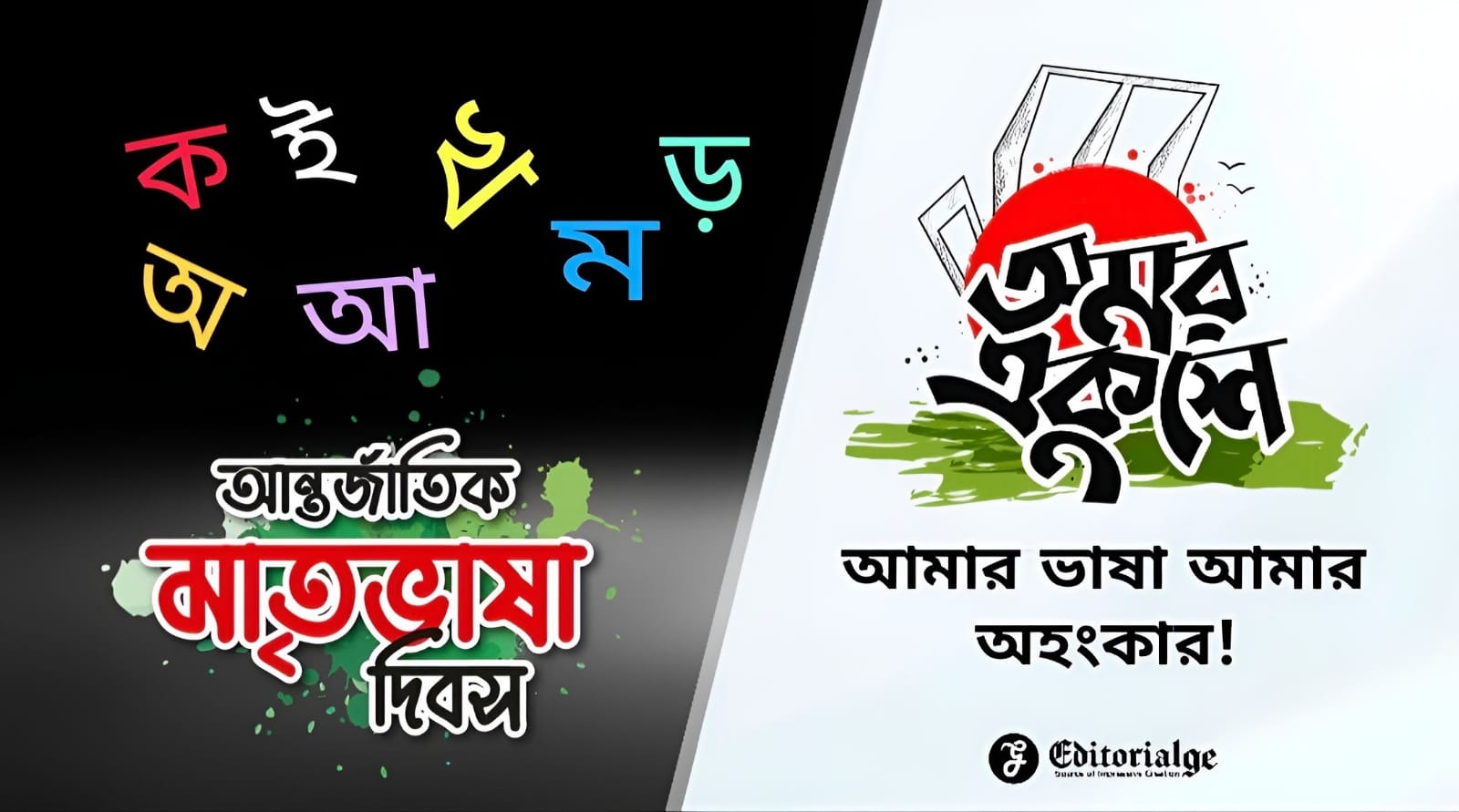
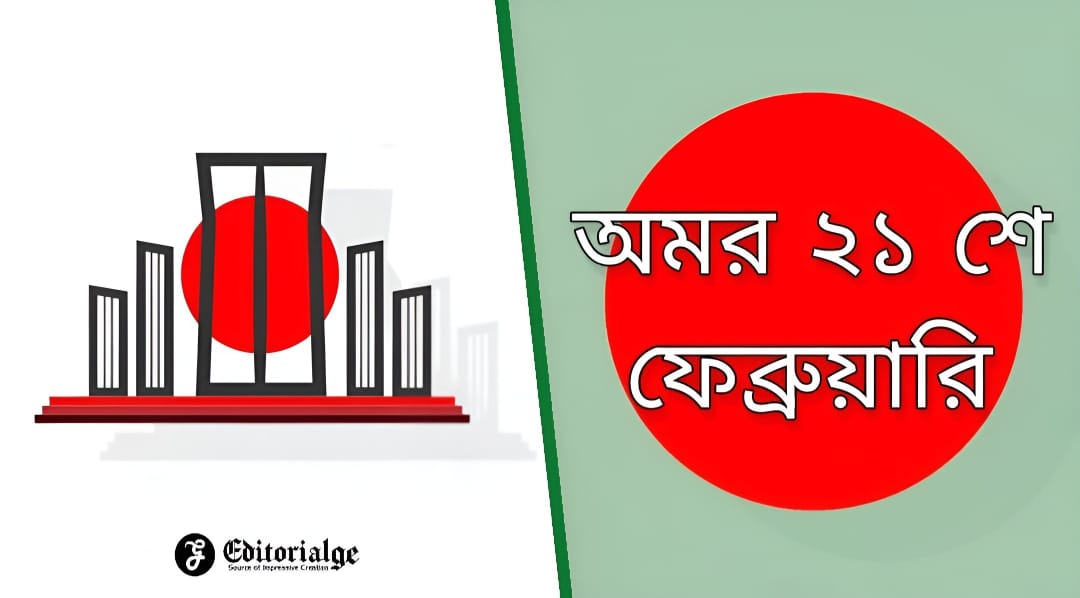
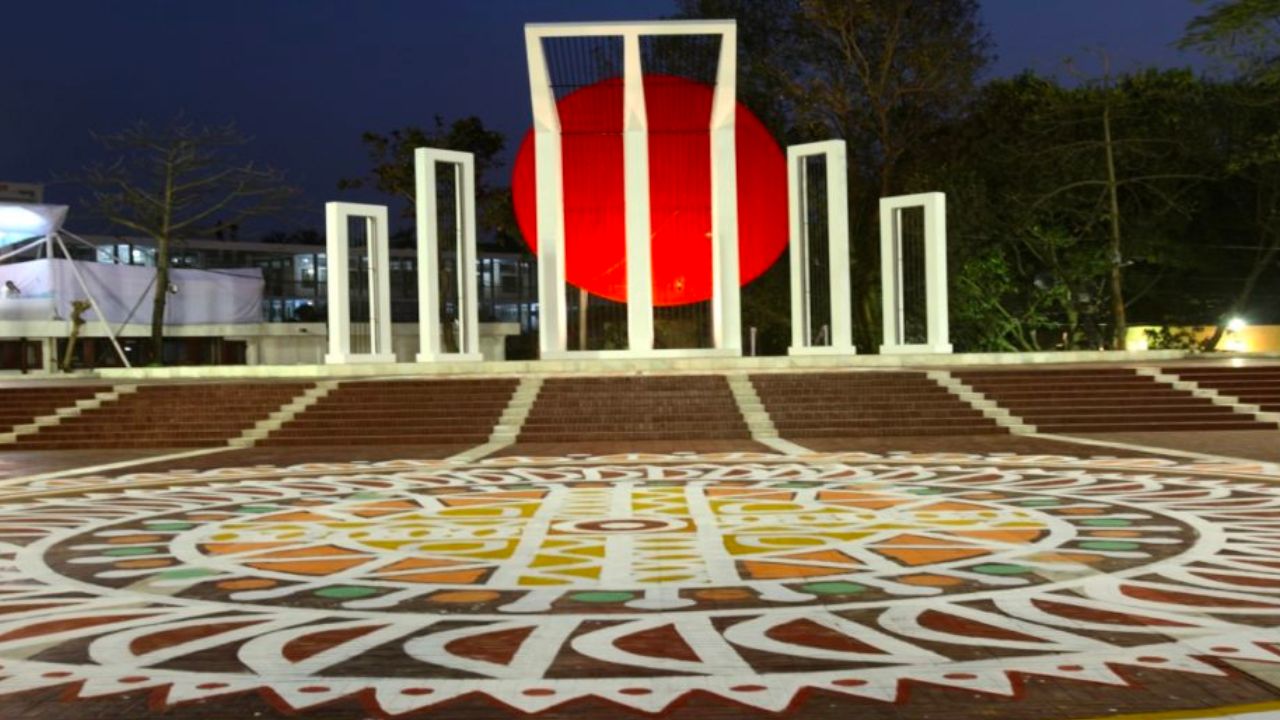
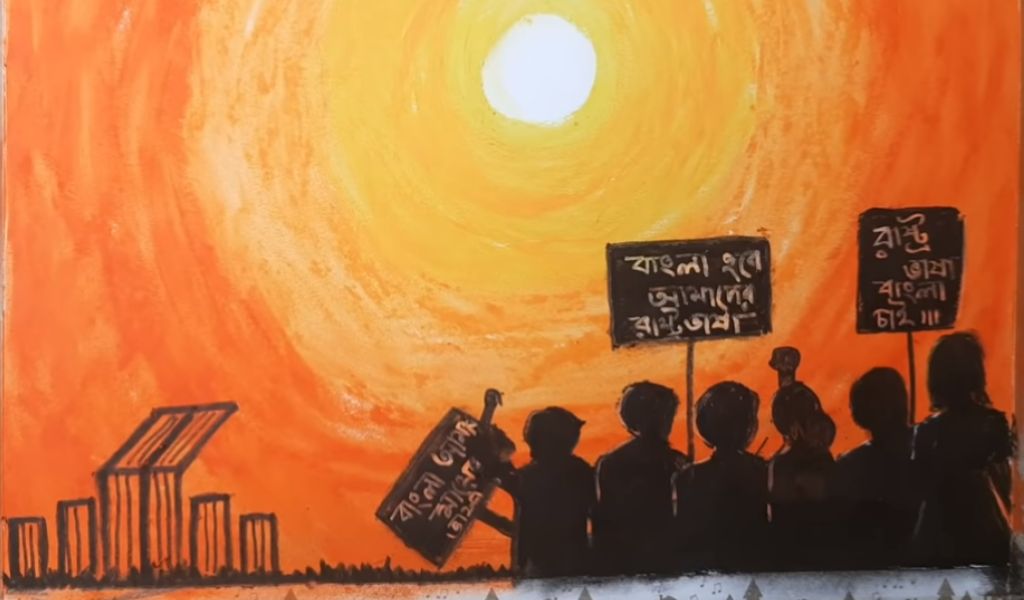 Glorius History and Significance of 21st February 1952:
Glorius History and Significance of 21st February 1952: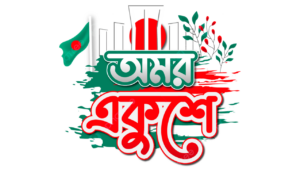 Bangla as the National Language of Bangladesh:
Bangla as the National Language of Bangladesh: 